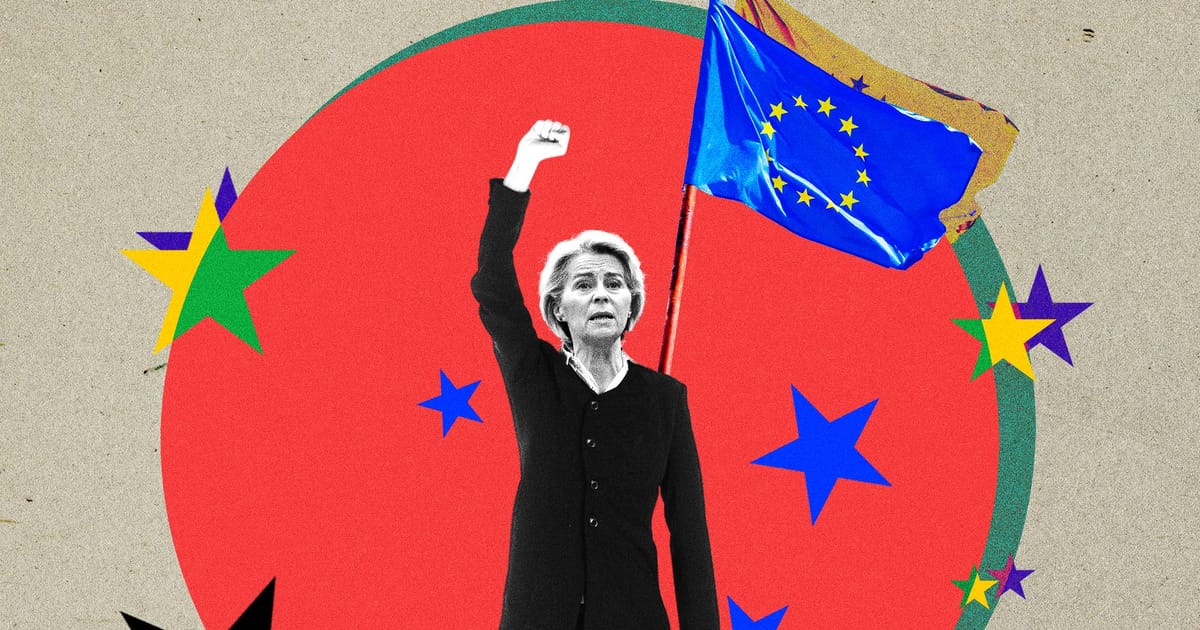As ongoing U.S. support for NATO remains in doubt, von der Leyen proposed an “Eastern Flank Watch,” including funding for a so-called drone wall long sought by Baltic countries, as well as a space surveillance system. She also suggested using Russian frozen assets to issue a “Reparations Loan” to finance Ukraine in the years to come.
She also signaled a change in her own approach to the Netanyahu government. Criticized by some capitals in the wake of Hamas’ brutal Oct. 7, 2023 attack on Israeli civilians for setting no limits on Israel’s right to defend itself, von der Leyen on Wednesday said a “man-made famine” in Gaza is part of a “systematic shift in the last months that is simply unacceptable.”
There’s little the Commission can do on its own, but von der Leyen made a vague promise to stop “bilateral payments” to Israel. With the left side of the chamber awash with red-dressed lawmakers commemorating Gaza victims, von der Leyen also proposed more severe punishments — suspending a trade agreement with Israel and sanctioning extremist ministers.
Those measures, while a marked toughening of the Commission’s approach, are unlikely to win the necessary support in a consistently divided Council, made up of the EU’s 27 national governments.
Clinging to the coalition
A year ago, just months after voters pushed the European Parliament to the right in the 2024 election, von der Leyen told MEPs of her plans to embrace a Europe that does less. Cutting red tape was the mantra.“Competitiveness” was in, “climate” was out.
The outcome has resulted in growing frustration among socialist, liberal and Green lawmakers, who have historically cooperated with von der Leyen’s center-right European People’s Party to run the EU and have endorsed her presidency. The center-left Socialists and Democrats didn’t back a bid by a far-right lawmaker to censure von der Leyen in July — but they vowed “resistance” if her policies kept veering right.

